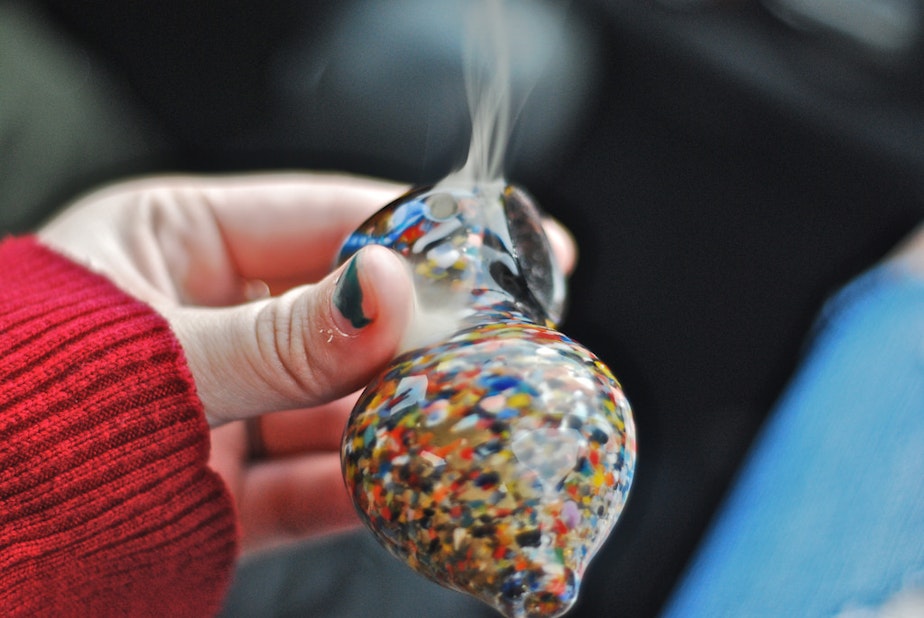Trouble talking to your kids about marijuana? You're not alone

Kim Malcolm talks with University of Washington researcher Nicole Eisenberg about the challenges facing parents as they talk to their children about using marijuana.
A recently published study in the Journal of Child and Family Studies looked at how tough this issue can be for parents, particularly when it's legal for adults in Washington state.
Eisenberg is a research scientist with UW's Social Development Research Group.
Listen to the interview by clicking the play button above.
Interview Highlights
On personal vs. societal values
Parents expressed this tension between the values that they hold at home and the values that society places.
They see society now as being more permissive towards marijuana use — it's legal for adults, there are stores, it's in the news a lot.
But at home, parents still use their personal values. Most of them say, 'I don't think it's okay for my kids to use marijuana.' So there's this conflict between their personal norms and rules and what society is presenting.
Monitoring kids in the age of edible marijuana
Some parents are monitoring by talking to their kids, by finding out who they're friends with, what they're doing, where they are... but sometimes it's hard to monitor what they are doing, especially with the marijuana edible.
Before, parents could smell marijuana on their kid's clothes because of the smoke. But edibles — which are very much marketed towards children since they come in things that are attractive to kids like cookies, brownies, or candies — are much harder to monitor. There are households where edibles are available, and it can be very hard to determine whether a child has consumed edible marijuana.
Following through with consequences
I think parents, for the most part, know that there should be consequences for misbehavior or for not meeting the guidelines that parents have for them. But it's very hard to actually carry out the consequences they've set out, and they may feel very frustrated.
I've heard a lot of, 'I just didn't know what to do' once they caught their child smoking marijuana.
We recommend that parents be explicit in their conversations and talk about these three things:
- What are the expectations and family values?
- How will you monitor their behavior? Explain to your child what you'll be looking for.
- Explain what the consequences will be (make sure you set them with respect to children; think about what matters to them like cash, computers, cell phones, clothes, curfews, cars, etc.)
How parents can talk to their kids about their past marijuana use
Give your children information, answer their questions, but don't overshare.
Provide as much as necessary, but you don't have to go into all the details because we want to model healthy behaviors. Ideally, we want to model non-use for children. On the other hand, it's understandable that parents want to be honest and credible.
Why does talking about pot with kids feel different than talking about alcohol?
Alcohol has been around so we feel more comfortable with it. I think we've learned as a society that that are negative consequences for inappropriate or excessive use of alcohol.
We know less, as a society and as researchers, about the effects of marijuana. While we're studying those effects now, I've heard from parents that they want to know more. The don't know a lot about the effects, and they're very eager to have unbiased information about both the positive and negative effects of marijuana.
Produced for the web by Brie Ripley.





